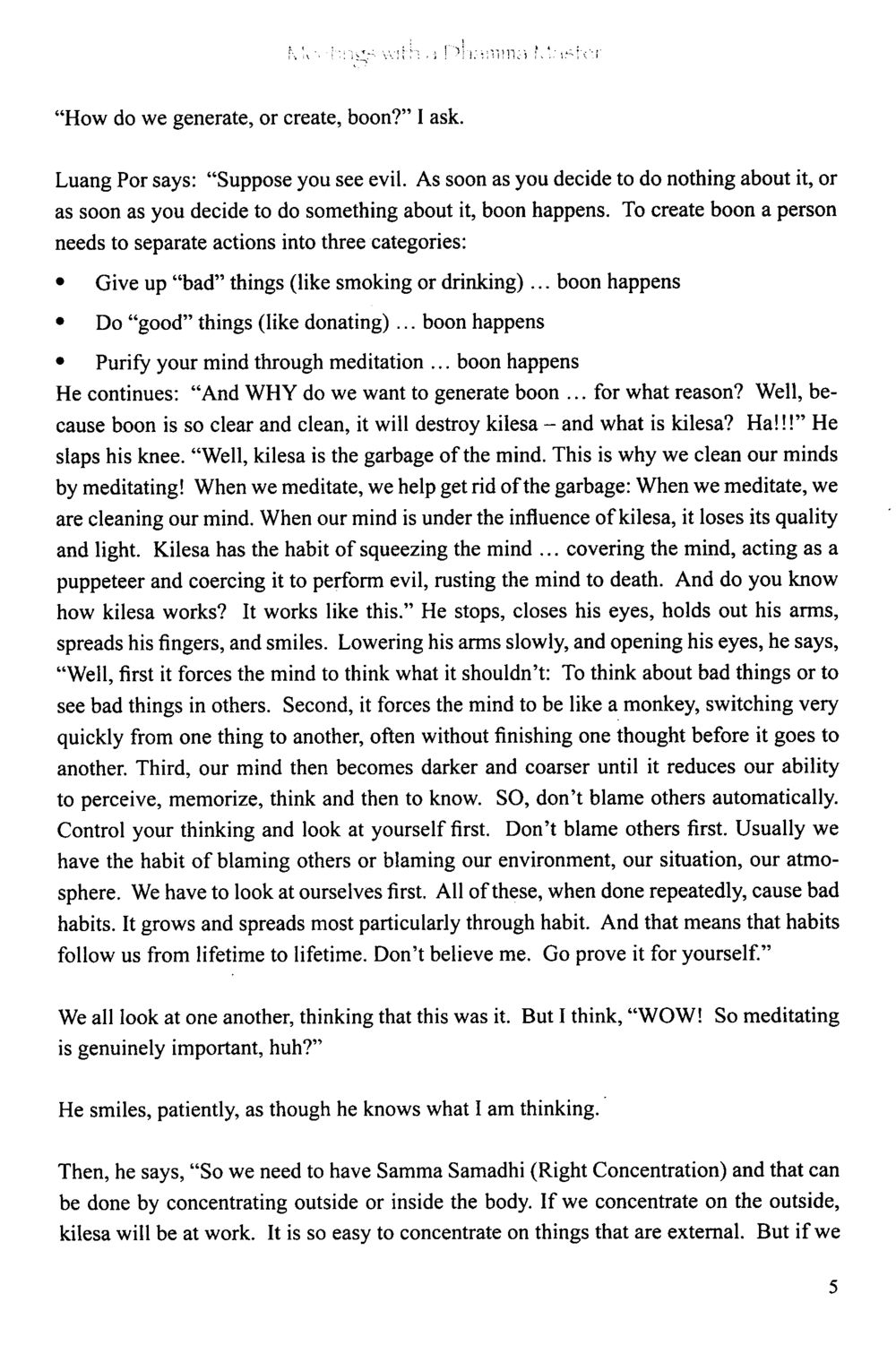Creating Boon through Meditation and Right Actions : หน้า 14/164
The Meeting with a Dhamma Master : หน้า 14/164 Learn how to generate boon by understanding the importance of meditation and avoiding negative actions. Discover the impact of kilesa on the mind and how to purify it.
0 ครั้ง

สรุปเนื้อหา
In this enlightening discussion, Luang Por explains the process of generating boon, emphasizing the importance of separating actions into three categories: giving up bad habits, performing good deeds, and purifying the mind through meditation. He identifies kilesa as the 'garbage of the mind' that must be eliminated to enhance the mind's quality. By meditating, individuals can cleanse their thoughts and avoid negative influences. Luang Por encourages self-reflection rather than blaming external factors for one’s mindset. He highlights the significance of Samma Samadhi (Right Concentration) in focusing on internal rather than external distractions to combat kilesa. Overall, the session reinforces the necessity of cultivating good habits and the transformative power of meditation in generating boon.
หัวข้อประเด็น
-Generating boon
-Understanding kilesa
-The importance of meditation
-Right actions and habits
-Self-reflection and mental purity
ข้อความต้นฉบับในหน้า
หน้าหนังสือทั้งหมด




































































































































































